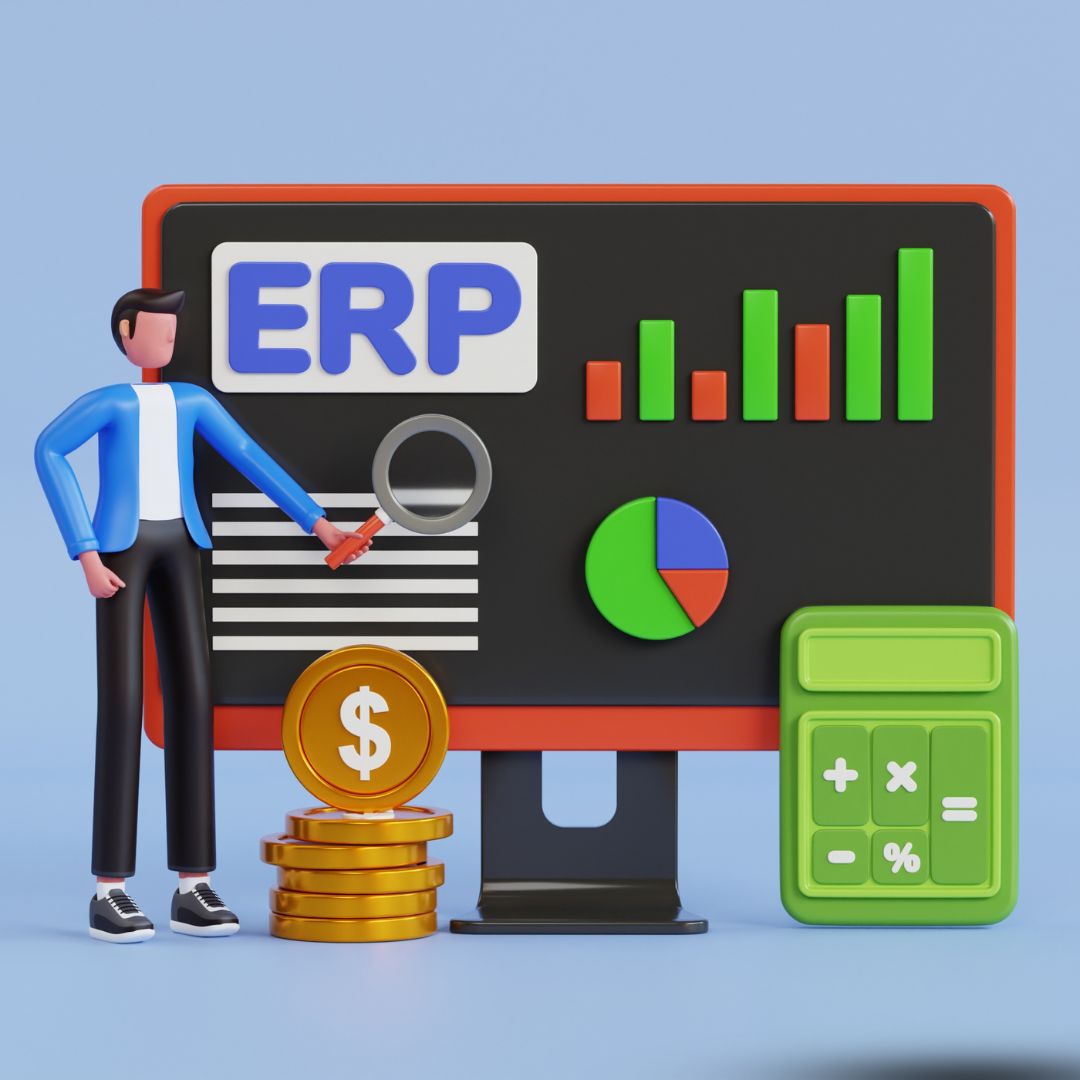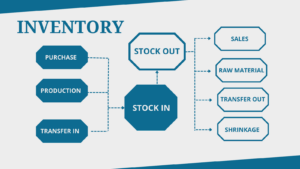Enterprise Resource Planning (ERP) systems have become an essential part of modern business operations. ERP systems are integrated software solutions that organizations use to manage and automate a wide variety of business functions. These functions can include finance, supply chain, procurement, manufacturing, human resources, customer relationship management (CRM), and more. By providing a centralized platform for handling different processes, ERP systems help businesses improve efficiency, reduce costs, and ensure smooth operation across departments. This blog will take a deep dive into what is Enterprise Resource Planning systems, their core components, their importance, and how they can transform businesses.
Understanding ERP Systems
Enterprise Resource Planning systems are software platforms designed to integrate various business processes into a single unified system. The key objective of an ERP system is to centralize and streamline operations so that organizations can improve efficiency and reduce redundancy. In simple terms, ERP systems act as the brain of an organization by providing a central repository of information and managing core processes across departments. Historically, businesses relied on disparate systems to manage individual functions. For example, they might have one software for accounting, another for inventory management, and yet another for customer relationship management. However, such a setup often resulted in disconnected data silos, where different departments had their own data sets, making it challenging to share information or collaborate effectively. ERP systems solve this problem by integrating these different processes into a single platform that provides real-time data access across the organization. As a result, ERP systems enhance decision-making capabilities and allow businesses to respond more effectively to changes in the market or internal operations.
Core Components of ERP Systems
ERP systems are made up of various modules that handle different business functions. While the exact makeup of an ERP system can vary depending on the vendor and the needs of the business, there are several core components that most ERP systems include:
1. Financial Management
The financial management module is a core component of ERP systems, providing tools for managing accounting, financial reporting, tax compliance, budgeting, and forecasting. This module allows organizations to track their financial performance in real-time, ensuring that they maintain accurate records of all transactions and have up-to-date information on cash flow, profitability, and expenses. With an integrated financial management system, businesses can reduce errors and ensure compliance with accounting standards and regulations.
2. Supply Chain Management (SCM)
The supply chain management module is designed to help businesses manage the flow of goods and services, from procurement to production to delivery. This module includes tools for managing suppliers, inventory, warehouse operations, production planning, logistics, and transportation. By integrating these processes, businesses can optimize their supply chain, reduce lead times, minimize stockouts, and ensure that products are delivered on time to customers.
3. Human Resources Management (HRM)
The human resources management module handles various HR functions, including employee records, payroll, benefits administration, performance management, recruitment, and employee training. By automating HR tasks, ERP systems enable organizations to efficiently manage their workforce, streamline HR processes, and ensure compliance with labor laws. This module also provides valuable insights into workforce performance and helps businesses plan for future staffing needs.
4. Customer Relationship Management (CRM)
The customer relationship management module helps businesses manage their interactions with customers and improve customer satisfaction. This module includes tools for managing sales leads, tracking customer interactions, processing customer orders, and handling customer service requests. By providing a complete view of customer interactions, ERP systems help businesses deliver a better customer experience, retain existing customers, and attract new ones.
5. Inventory and Warehouse Management
The inventory and warehouse management module is essential for businesses that manage large volumes of inventory. This module helps businesses track inventory levels in real-time, manage warehouse operations, and ensure that stock levels are optimized. With this module, businesses can reduce excess inventory, minimize stockouts, and improve order fulfillment processes.
6. Procurement Management
The procurement management module helps businesses streamline their procurement processes by managing supplier relationships, purchase orders, and contract management. This module allows businesses to track and manage their procurement activities, ensuring that they can efficiently source the materials and services they need to operate. By automating the procurement process, businesses can reduce costs, improve supplier relationships, and ensure that they are always stocked with the materials they need.
7. Manufacturing
For businesses involved in production, the manufacturing module is a critical component of the ERP system. This module helps manage the entire production process, from planning and scheduling to quality control and production execution. By automating manufacturing processes, businesses can increase production efficiency, reduce waste, and ensure that products meet quality standards.
Importance of ERP Systems in Modern Business
ERP systems have become a cornerstone of business operations in industries ranging from manufacturing and retail to healthcare and finance. The importance of ERP systems lies in their ability to centralize and streamline business processes, resulting in a wide range of benefits for organizations:
1. Increased Efficiency
One of the most significant benefits of Enterprise Resource Planning systems is the improvement in operational efficiency. By automating repetitive tasks and eliminating manual processes, ERP systems reduce the amount of time and effort required to complete essential business functions. This allows employees to focus on more strategic activities, which can lead to increased productivity and better decision-making.
2. Data Accuracy and Consistency
ERP systems centralize data from different departments, ensuring that all employees have access to accurate and up-to-date information. This eliminates the need for manual data entry and reduces the risk of errors. Additionally, ERP systems enforce consistency in data management, ensuring that data is standardized across the organization.
3. Better Decision-Making
With real-time data at their fingertips, decision-makers can make informed choices about the direction of the business. ERP systems provide detailed insights into key performance metrics, financial health, customer trends, and supply chain efficiency. These insights help businesses make strategic decisions that improve overall performance and competitive advantage.
4. Improved Collaboration
ERP systems enable better collaboration between departments by providing a unified platform for sharing information. Employees from different departments can access the same data, which helps them work together more effectively. For example, the sales team can check inventory levels in real-time before committing to a customer order, while the finance department can monitor the financial impact of procurement decisions.
5. Scalability
As businesses grow, their operational needs become more complex. ERP systems are designed to scale with the business, allowing organizations to add new modules and features as needed. This scalability ensures that businesses can continue to operate efficiently as they expand and take on new challenges.
6. Regulatory Compliance
ERP systems help businesses stay compliant with industry regulations and standards. Many industries, such as healthcare, finance, and manufacturing, are subject to strict regulatory requirements. ERP systems provide the tools needed to maintain accurate records, track compliance, and generate reports for regulatory authorities.
7. Cost Savings
While implementing an ERP system can be a significant investment, the long-term cost savings are substantial. By automating tasks, reducing errors, and improving efficiency, ERP systems help businesses save money in the long run. Additionally, ERP systems provide better visibility into costs, allowing businesses to identify areas where they can reduce expenses.
How ERP Systems Are Transforming Businesses
The implementation of Enterprise Resource Planning systems has a transformative effect on organizations, changing how they operate and compete in the marketplace. With the rise of digital transformation, ERP systems are evolving to meet the needs of modern businesses, providing even more powerful tools for managing operations.
1. Cloud-Based ERP Systems
One of the most significant trends in ERP systems is the shift towards cloud-based solutions. Cloud-based ERP systems provide businesses with greater flexibility, allowing them to access their ERP system from anywhere with an internet connection. This is especially important for organizations with remote or distributed teams. Additionally, cloud ERP system are often more cost-effective, as they eliminate the need for expensive on-premise infrastructure.
2. Mobile ERP Systems
As mobile technology continues to evolve, businesses are increasingly turning to mobile ERP systems to manage their operations on the go. Mobile ERP systems allow employees to access critical business information from their smartphones or tablets, enabling them to make decisions in real-time, whether they are in the office or in the field.
3. Artificial Intelligence and Machine Learning
ERP systems are also incorporating artificial intelligence (AI) and machine learning (ML) to provide more advanced analytics and automation. These technologies allow ERP systems to analyze large volumes of data and identify patterns or trends that may not be immediately apparent. With AI and ML, ERP systems can provide predictive analytics, helping businesses make proactive decisions based on data-driven insights.
4. Integration with IoT
Another emerging trend in ERP systems is the integration with the Internet of Things (IoT). IoT devices generate vast amounts of data that can be used to optimize operations, improve supply chain efficiency, and enhance product quality. By integrating IoT data with ERP systems, businesses can gain greater visibility into their operations and make more informed decisions.
Conclusion
Enterprise Resource Planning systems are critical tools for managing and optimizing business processes. By providing a centralized platform for handling functions like finance, supply chain management, human resources, and customer relationship management, ERP systems improve efficiency, reduce costs, and enhance decision-making. With the rise of cloud-based, mobile, and AI-powered ERP solutions, businesses can take advantage of cutting-edge technology to stay competitive in today’s fast-paced market. Understanding what is enterprise resource planning systems and how they benefit organizations is key to thriving in the modern business landscape.













